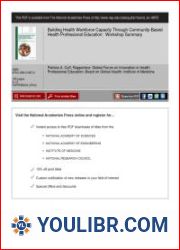
BOOKS - Still Broken: Understanding the U.S. Health Care System


US $6.54

584823

584823
Still Broken: Understanding the U.S. Health Care System
Author: Stephen Davidson
Year: March 24, 2010
Format: PDF
File size: PDF 1.9 MB
Language: English
Year: March 24, 2010
Format: PDF
File size: PDF 1.9 MB
Language: English
The debate over health care policy in the U. S. did not end when President Obama signed the landmark Patient Protection and Affordable Care Act (PPACA) on March 23, 2010. Since then, half the states have sued and federal judges have issued conflicting rulings about the law's constitutionality. In addition, the new Republican-controlled House of Representatives voted to repeal it, and Republicans have pledged to bring it up again during negotiations over the 2012 federal budget. The continuing controversies over PPACA are only one reason that Still Understanding the U.S. Health Care System is a must-read for engaged citizens, policymakers, students, and scholars alike. The book takes a close look at our problems, proposes solutions to them, and explains how to navigate our political system to effect positive change. It will help * Assess the arguments made by partisans on both sides of the continuing debate. * Understand why President Obama was able to get Congress to pass a comprehensive reform bill even though most of his predecessors tried and failed. * Understand why so many Americans are either confused about its value or actually oppose it. In the book's first part, Stephen M. Davidson paints a lucid picture of the way that the health system works and the forces that produced the monumental problems that we face today. Then, he makes a compelling case for overhauling our system, offering six elements for inclusion in any plan for change. Davidson devotes the last three chapters to a detailed examination of the politics of reform. This assessment will help readers to appreciate both the political achievement represented by passage of the new law and the reasons that opposition to the law remains so widespread, despite all the good it does for the public. Whatever compromises, if any, are accepted by negotiators in the end, the book makes clear why, to fully solve the system's problems, the underlying goal must be to change incentives for all players who participate in the system and, finally, why this goal cannot be achieved by relying solely on market-based solutions. Davidson's captivating and persuasive book demonstrates that only a solution with a large public-sector role can lead us to real reform.














































